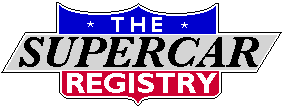

Dedicated to the Promotion and Preservation of American Muscle Cars, Dealer built Supercars and COPO cars. |
|
|||||||
| Register | Album Gallery | Thread Gallery | FAQ | Community | Calendar | Become a Paid Member | Today's Posts | Search |
|
|
Thread Tools | Display Modes |
|
#1
|
|||
|
|||
|
I need to know if others have seen a number such as "1" on the extreme upper right hand corner of the cowl tag. The cowl tag in question is a Baltimore tag. Thanks
|
|
|